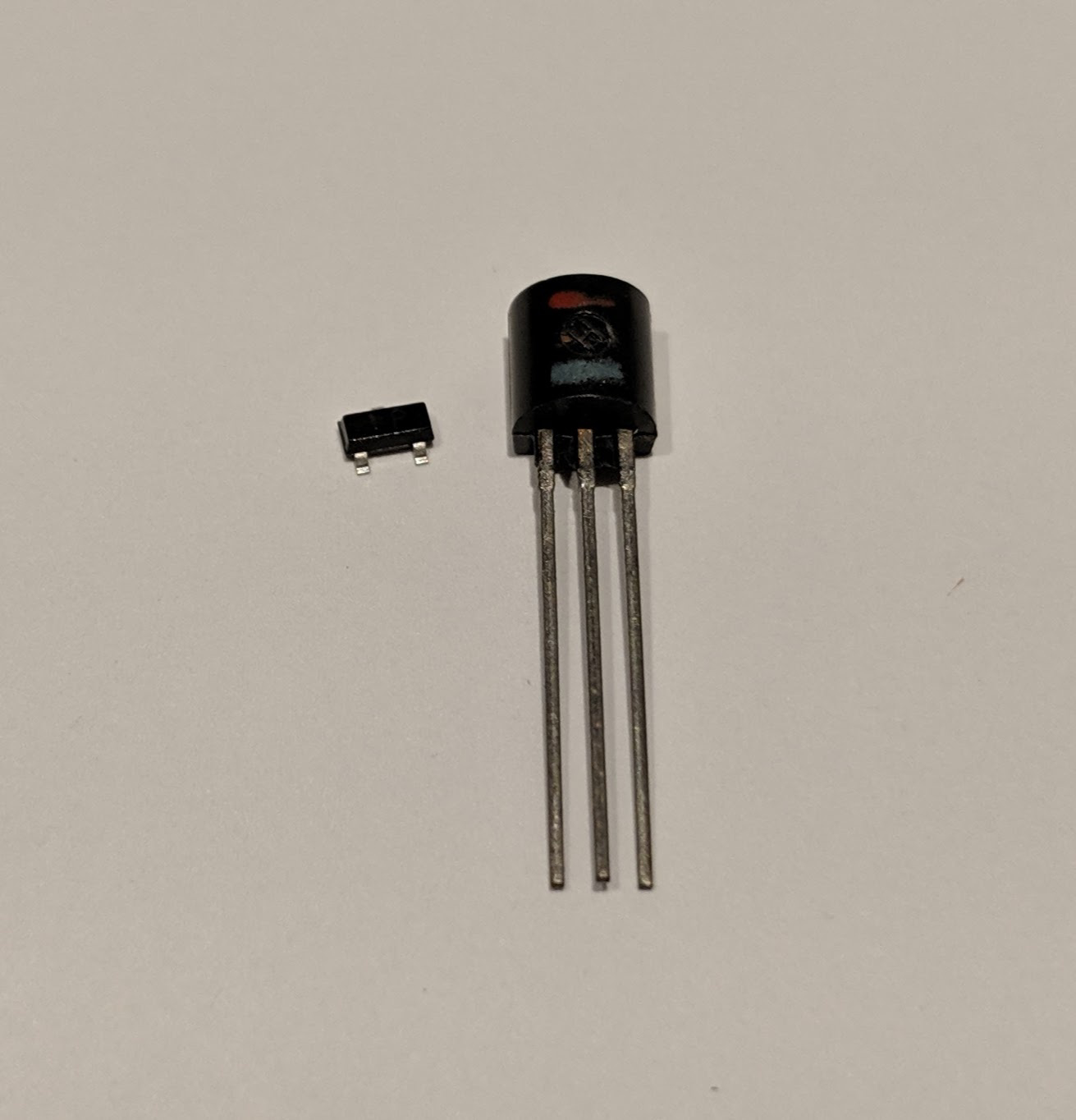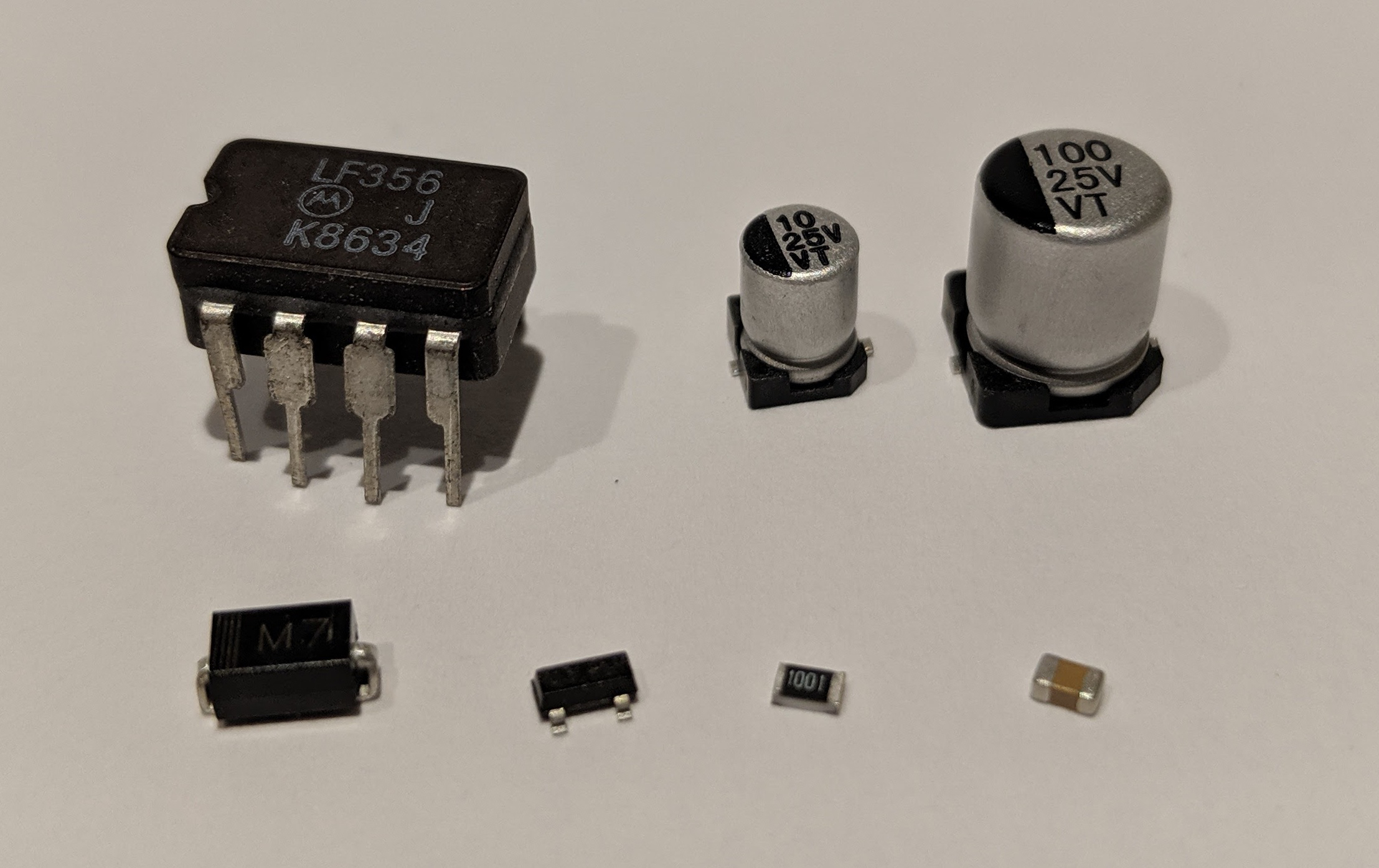Soldering
This community is for electronic hobbyists to discuss projects and is focused on soldering. Everyone is welcome from the noob to people who have been soldering as a hobby for decades to people who solder professionally. We'll talk about materials and techniques, equipment, and projects. Everyone is welcome. All questions are welcome. Post photos and ask for help.
RULES:
-
All Lemmy.ca rules apply here.
-
Everyone (see rule 98) is welcome.
-
If you’ve seen a question 100 times answer it the 101st time or ignore it. Even better, write a complete, detailed answer and suggest that the mod(s) pin it to the community.
-
Don't tell other users what they should have done of that what you do is better. You do what you want to do and let other people do what they want to do. What is best for you might not be best for others.
[Did you actually think there were 98 rules?]
-
If you present something as fact and are asked to provide proof or a source provide proof or a source. Proof must be from a reliable source. If you fail to provide proof or a source your post or comment may be removed.
-
Don’t be a dick. Yes, this is a catch-all rule.
-
The mod(s) have the final say.
view the rest of the comments


I took a quick look and there are some DIY guitar pedal kits for around $35 on Amazon. They're probably not the best quality but they're definitely a way to get your feet wet.
The small parts are a challenge but the key part if getting them positioned properly and tacked down. Once you've got a couple of opposite pins you can work on the others easily. For the tiniest of pieces like the tiny resistors the surface tension of the solder will stand them right up on end and pull them around which is very frustrating. I get those in place, hit them with liquid flux, then hold them down and touch one end. After that the other end is easy.
What's important here is that I'm using a standard soldering iron like anyone would use. It's a good one but it's just a soldering iron.
That's the whole joy of audio that supposed to mess with the signal - it doesn't need high fidelity, high quality, it just needs to do something 'interesting'. The main thing that stops me is a lack of space to set up a mini-workshop. Thanks for the good explanation, I would have never imagined components wanting to do that! The last time I messed with electronics probably was Radio Shack kids kits in the 1980s, the kind where the board had springs sticking out and held resistors and diodes to build AM radios and things with lamps & switches. It'd be good to get into it, but it all seems so hard, complex, and advanced now. I mean Auduino is kinda cool, but it's too much like my day job so I want to go all-analogue. It doesn't stop me wanting to buy an oscilloscope though, just to see what's going on! I think part of that is trust that I'm not going to melt my favourite guitar amp...
What do you think of my new distortion pedal?
It's so...distorted.
I know, right? It's AWESOME!
I'm fortunate that I have a little straw bale shed behind my house where I have my office. It's 7' x 11' on the inside and I have 4' x 7' of one end walled off to form my office and the rest a front room with a futon couch. It is a tiny space but I fit a LOT into it. All you really need is a bin with a piece of hardboard in it to use as a table protector, your soldering iron, and other goodies. You can start small.
I bought a digital scope a while ago. It's a Siglent SDS 1102CML+. I think it's 100 MHz but it's software hackable up to...300 MHz? If you're going to be doing analog why not buy a used analog scope. I often see HPs and Tectronics on Facebook Marketplace for a couple of hundred dollars. Those are VERY nice scopes and, between you and me, it's a LOT more scope for the same money as the new digital scopes.